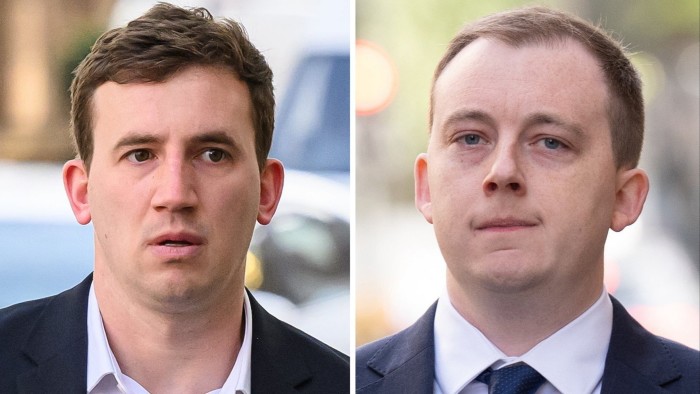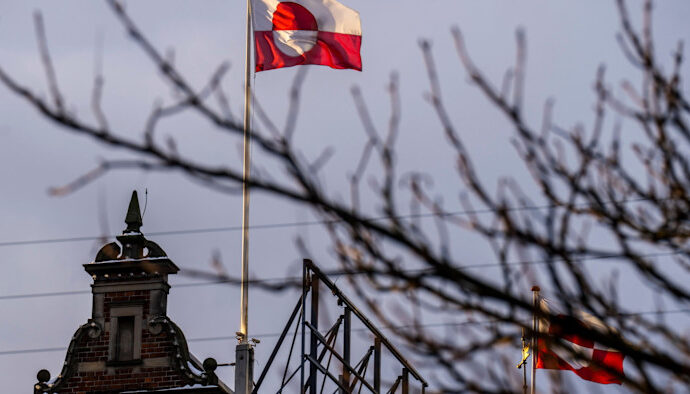Pressure is growing on Sir Keir Starmer’s government to explain its role in the collapse of a China espionage case in the UK.
Senior MPs have called for an investigation into why the case against two Britons was suddenly dropped by prosecutors last month, prompting claims the government had prioritised trade with China over the UK’s national security.
Some MPs fear the case risks giving a green light to Beijing to spy at Westminster, given the alleged offences included providing information on parliamentarians to a Chinese agent.
What was the case about and what is the government alleged to have done?
Two British men — Christopher Cash, 30, from Whitechapel in east London, and Christopher Berry, 33, from Witney in Oxfordshire — were charged with spying on behalf of China in 2024.
Cash was a parliamentary researcher at Westminster who worked closely with MPs. He was the director of the China Research Group, a hawkish Conservative campaign group on China-UK relations.
Both Cash and Berry strongly denied any wrongdoing, and last month the Crown Prosecution Service announced it was dropping the case against them, citing a lack of evidence. They were previously due to stand trial on October 6.

The UK’s top security advisers have now been accused of fatally undermining the CPS case against Cash and Berry.
There was a row at a meeting in September involving the Home Office, and attended by Jonathan Powell, Starmer’s national security adviser, Matthew Collins, deputy national security adviser, and Olly Robbins, permanent under-secretary at the Foreign Office, according to other senior officials.
The officials claimed the security advisers told the Home Office that Collins would not identify China as an “enemy” in court — which was seen as a key element of any successful prosecution under the UK Official Secrets Act.
That meant the CPS was no longer confident of securing convictions of Cash and Berry, and so decided to drop the case, the officials said.
The decision that Collins would not identify China as an “enemy” in court was made over concerns a trial of the two men could damage the UK’s relationship with Beijing, the officials claimed.
This came at a time when Starmer’s government has been seeking overseas investment and trade to bolster weak UK economic growth, with the prime minister expected to visit China in the coming months.
In a similar trial earlier this year, UK prosecutors — backed by testimony from Collins — argued that an enemy included “any country which presents a threat to our national security”. Six Bulgarian nationals were convicted of spying on behalf of Russia in May as a result.
The UK has a complex relationship with China: it is the UK’s third-largest trading partner, but the government warned in its national security strategy published in June about the challenge of growing “espionage” by Beijing and increased “interference in our democracy and the undermining of our economic security”.
Why did the UK need to call China an ‘enemy’ in court?
Using the now repealed Official Secrets Act, which Cash and Berry were charged under, the CPS accused the two men of providing “articles, notes, documents or information” that could be “useful to an enemy”, which is how the offence is described in the legislation.
Therefore, for the charges to be made out, China must be considered an “enemy”.
The language has since been modified under the UK National Security Act, which came into force in 2023, in an attempt to modernise Britain’s approach to espionage laws.
The word “enemy” has been changed to “foreign power”, to recognise the fact that the UK is not at war with any countries but does face threats from foreign powers.
Cash and Berry could not be charged under the National Security Act because their alleged offending had taken place before the legislation came into force.
What do prosecutors say about the case and why it collapsed?
When the CPS told the Old Bailey it was dropping the case against Cash and Berry last month, the agency said it was offering no evidence because it was deemed that the material did not meet the threshold to go to trial.
Following the decision, Stephen Parkinson, director of public prosecutions and head of the CPS, said in a letter to shadow home secretary Chris Philp that it was important to reiterate “that at the time the charging decision was made [the CPS] concluded, correctly in my view, that there was sufficient evidence to prosecute”.
Parkinson went on to say he shared in “the disappointment, and indeed frustration . . . that this prosecution had to stop” but that there had been an “evidential failure”, without elaborating.
He said the “enemy” terminology in the law was a “limitation” and that the CPS had considered alternative offences but found none suitable.
Former government officials, who were in post at the time the charges were originally brought against Cash and Berry in April 2024, said the CPS would not have pursued the case unless they were confident there was at least a 70 per cent chance of securing convictions.
What has the government said in response?
The government has said the CPS acted entirely independently of the government in the agency’s decision to drop the case against Cash and Berry.
The government has also said that it never “withheld” any evidence, with Starmer’s spokesperson stating on Monday: “The suggestion that the government withheld evidence, withdrew witnesses or restricted the ability of witnesses to draw on particular bits of evidence are all untrue.”
But the government’s top security advisers were not accused of withholding evidence. Some senior officials said they declined to identify China as an “enemy” just a month before the case against Cash and Berry was due to go to trial.
Other officials have insisted the security advisers had never pledged to call China an enemy when they first submitted their evidence to the CPS, even if they took that stance against Russia in the Bulgarian spying case.
The Cabinet Office said on Sunday that Powell “did not take any decisions” about the content of Collins’s evidence in relation to the case against Cash and Berry.
It added it was “completely false” to say there was pressure from the top of the government to drop the case.
Why does this case matter?
Sir Lindsay Hoyle, the House of Commons Speaker, told MPs last month he was “very unhappy” with the CPS decision to drop the case against Cash and Berry, and later warned that this potentially “leaves the door open to foreign actors trying to spy on the House”.
The claim that the UK’s top security advisers refused to identify China as an enemy of Britain in open court, leading to the collapse of the case, raises serious questions about whether the government put trade ahead of national security.
MPs affected by the alleged espionage have said they were told the prosecution of Cash and Berry was going to be a “slam dunk”.
Parkinson has been pressed for a more detailed explanation about why the case was dropped in a joint letter from Karen Bradley, Conservative chair of the Commons home affairs committee, and Alan Slaughter, her Labour counterpart on the justice committee.
“It is in our shared interest to provide reassurance to parliamentarians and the public that the necessary protections against foreign interference in our democracy are in place and fully functional,” the MPs said.
“It is also in our shared interest to demonstrate transparency and accountability in order to promote trust in the criminal justice system.”
The Liberal Democrats called for the government to publish any legal advice it had received about the case against Cash and Berry, and for Powell to give evidence to parliament’s intelligence and security committee.
“Threats to our democracy cannot be swept under the rug,” the Lib Dems said.


